Switch to the mobile version of this page.
Vermont's Independent Voice
- News
- Arts+Culture
- Home+Design
- Food
- Cannabis
- Music
- On Screen
- Events
- Jobs
- Obituaries
- Classifieds
- Personals
Browse News
Departments
-
Education

Scott Official Pushes Back on Former State…
-
News

Burlington Budget Deficit Balloons to $13.1 Million
-
Education

Senate Committee Votes 3-2 to Recommend Saunders…
- Court Rejects Roxbury's Request to Block School Budget Vote Education 0
- Norwich University Names New President Education 0
- Media Note: Mitch Wertlieb Named Host of 'Vermont This Week' Health Care 0
Browse Arts + Culture
View All
local resources
Browse Food + Drink
View All
Browse Cannabis
View All
-
Culture

'Cannasations' Podcaster Kris Brown Aims to 'Humanize'…
-
True 802

A Burlington Cannabis Shop Plans to Host…
-
Business

Judge Tosses Burlington Cannabiz Owner's Lawsuit
-
Health + Fitness

Vermont's Cannabis Nurse Hotline Answers Health Questions…
-
Business

Waterbury Couple Buy Rare Vermont Cannabis License
Browse Music
View All
Browse On Screen
Browse Events
Browse Classifieds
Browse Personals
-

If you're looking for "I Spys," dating or LTRs, this is your scene.
View Profiles
Special Reports
Pubs+More
Montpelier Endurance Athlete and Advocate Mirna Valerio Is Taking Up Space
Published August 12, 2020 at 10:00 a.m. | Updated August 25, 2020 at 2:32 p.m.
Mirna Valerio is a fat runner. She prefers the word "fat" to "plus-size," "overweight" or "curvy," none of which accurately describes her experience of her body. In August 2011, she started a blog called Fat Girl Running, a title she chose as both a rebuke to diet culture and a simple statement of fact.
Valerio had no interest in contributing to the self-loathing, stereotype-perpetuating weight-loss genre. "I have never really been super self-conscious about my body type throughout the years, except for maybe in middle school — when I did get called a 'fat bitch' on 'National Butt Day' by this very short, popular kid in eighth grade," she wrote in her first post, titled "This Is Not a Weight Loss Blog."
Instead, Valerio wrote about sports bras that minimized painful boob-jiggle; seams that chafed and seams that didn't; socks that kept her feet dry and blister-free on wet, muddy race courses. She recorded her triumphs and her disappointments; she extolled the virtues of jalapeño-flavored Kettle chips as a pick-me-up during a 100-kilometer race in the Arizona desert. She didn't write to convince anyone that fat people deserved to be taken seriously as athletes, and she didn't run for any reason other than her own personal fulfillment.
Valerio, 44, who lives in Montpelier, has completed 11 marathons and 14 ultramarathons — races of more than 26.2 miles — in a body that defies the culturally constructed image of an endurance athlete. In the nine years since she launched her blog, she has become an icon in a space where virtually nobody else looks like her.
In 2017, Valerio landed on the cover of Runner's World magazine; in 2018, National Geographic named her its "Adventurer of the Year." She's famous enough that she occasionally gets stopped on Stowe Pinnacle and on the streets of Montpelier. A few years ago, at Dallas-Fort Worth International Airport, someone bellowed at her as she walked to her gate: "MIRNA!" (To hear this in your head properly, it's pronounced MUR-na.)
Over the last decade, the outdoor recreation industry has drawn criticism for projecting a narrow image — thin, white and usually male — of who qualifies as a "serious" adventurer, who deserves to wear wicking apparel, who belongs in wild places at all. As a fat Black woman, Valerio belongs to a demographic that doesn't typically see itself reflected in outdoor media.
In her 2014 book, Black Faces, White Spaces, Carolyn Finney, a scholar-in-residence at Middlebury College's Franklin Environmental Center, quantified the dearth of images of people of color in natural settings in a survey of 44 issues of Outside magazine published between 1991 and 2001. Finney found that "the majority of the pictures of African Americans were black males participating in sports activities, primarily running or basketball, in an urban setting." There were almost no images of Black women, except for track athletes Jackie Joyner-Kersee and Florence Griffith Joyner.
Valerio is well acquainted with the stigma of taking up space. "I become emotionally drained by living in a body whose shape is assumed to be the product of indolence, letting myself go (whatever that means), lack of self-control, intellectual and moral inferiority," she wrote in her 2017 memoir, A Beautiful Work in Progress. "I am complex. I am more than what my body suggests to others visually."
In the midst of a national reckoning with racism that has underscored the perils of being outside while Black — Ahmaud Arbery, shot by white men in February while jogging through a southern Georgia neighborhood; Christian Cooper, subjected to a false police report while bird-watching in New York City's Central Park — the precariousness of the space Valerio occupies has become more visible than ever.
No Pain, No Gain
Valerio grew up in Bushwick, Brooklyn. Her running career began on the streets of her neighborhood, where she and her brother, Duke; her sister, Allie; and a gaggle of assorted cousins would play tag up and down the block almost every night until after dark.
Her mother, Joann, took care of the family and did odd jobs; her stepfather, Allen, worked in the laundry facilities of a hospital in Brooklyn. Valerio's biological father, a merchant seaman from Honduras, had a limited presence in her early life; in addition to Valerio, he had 13 other children in "ports all over the world," as she likes to joke. When she was growing up, he visited occasionally and wrote her letters. She liked his worldly mystique.
Valerio's family didn't have a lot of money and sometimes needed public assistance to get by. Her mother and her aunt Sherry, the heroines of Valerio's childhood, would sacrifice their own needs to ensure that their family could eat. In her memoir, Valerio described their inseparability, their matching slow, ponderous gaits:
"As kids, we made fun of how slowly [my mother] and aunt Sherry walked everywhere. An errand to the supermarket on Knickerbocker Avenue sometimes took hours ... On their walks they would compare notes on the kids and other subjects in their lives: who was being bad in school, who was excelling ... which man had upset or abandoned them ... who was pregnant again, whose asthma was still acting up."
Sherry, who suffered from severe hypertension, died of a massive heart attack at the age of 37, when Valerio was a teenager. Her mother, who is still alive, struggles with diabetes and hypertension.
Valerio was a good student and an avid reader. One day, her stepfather brought home a massive tome on internal medicine that he had found at the hospital; Valerio read the book cover to cover more than once. For a time, she was set on becoming a doctor because of her family's history of diabetes and other chronic health problems. She went to a Pentecostal church, but by the time she was a teenager, she'd read the Bible several times and decided she didn't agree with most of it.
Starting in adolescence, Valerio was on the heavier side. The summer before she entered ninth grade, a doctor told her that she was obese and needed to lose weight. "It stung," Valerio wrote in her memoir. "It was so clinical, so dry yet judgmental and ultimately unhelpful."
But his pronouncement didn't destroy the sense of pride she felt in her body: "I could have let those words feel heavy, like a life sentence, sitting on top of me like the elephant on the woman's chest in those COPD commercials ... but I didn't."
In middle school, Valerio enrolled in Prep 9, a program that places high-achieving students of color in New York City at private schools throughout the Northeast. She was accepted at the Masters School, an all-girls boarding school in Dobbs Ferry, N.Y. There, she discovered field hockey — and that she loved running, even if she was the slowest one on the team.
Valerio also discovered that she could sing — like, really, really sing. On weekends, she took the train into Manhattan for lessons at the Juilliard School. She ended up attending the Oberlin Conservatory of Music in Ohio, where she studied music and Spanish.
After college, Valerio had a brief stint at the accounting firm KPMG, then as a paralegal at a New York City law firm, neither of which she found particularly fulfilling. But both jobs afforded her a financial cushion, something she'd never had growing up. That stability allowed her, among other things, to purchase a gym membership and join a running clinic. Valerio recounts in her memoir that when she bought her first running shoes, a $35 pair of Adidas, the salesperson looked her up and down (it had already been enough of an ordeal to get him to find her a size 11) and asked, snarkily, "'How many miles do you run on a daily basis?'"
Haters notwithstanding, Valerio ran 5 and 10Ks. She also met her husband, Cito Nikiema, while waiting for the subway one blizzardy night; the two had a son, Rashid, in 2003. Over the next few years, Valerio led a peripatetic and not terribly healthy lifestyle. She moved from New York to Baltimore to teach at a private school, then to central New Jersey to work at a boarding school. Nikiema drove tow trucks and semis for a living, and their schedules rarely lined up.
At the same time, Valerio was in grad school, teaching private music lessons to clients in Maryland on weekends and raising Rashid, who was often sick with bronchitis and rarely slept through the night. Her weight rose to nearly 300 pounds, the heaviest she had ever been.
In 2008, while driving home with Rashid from Maryland to central New Jersey from one of her clients' houses, Valerio felt a sharp, stabbing sensation in her chest. She managed to get home, fighting through waves of pain and panic, and called a colleague from school to take her to the emergency room.
The episode turned out not to have been a heart attack, but her lab results showed that she was at high risk of a major cardiac episode. A few days later, her doctor told her that if she wanted to see her son grow up, she would have to drastically change her lifestyle and lose weight.
Valerio had never felt compelled to shed pounds for the sake of changing her appearance, but the idea of not being around for her son shook her into motion. She signed up for 5Ks and made a point of exercising every day, multiple times a day — a three-mile run in the morning, followed by a high-intensity interval training class, lifting weights at lunch and tennis with her coworkers after classes were finished. She posted on Facebook about her milestones: "Missed the police escort by about 6 people today at the Westfield Turkey Trot. It's gettin' better!"; "Finally finished a half in under three hours!"; "Major, MAJOR plateau. Ugh!"; "Is officially under 250. OFFICIALLY! Now for that Philly cheesesteak ... JK!"
In the summer of 2011, shortly after launching her blog, Valerio ran in the North Face Endurance Challenge, a half marathon just outside of Washington, D.C. In her blog post recounting the race, she wrote: "Here was me, anxiously looking for any Clydesdale/Athena types who might also be taking the plunge with me ... I do this at every race, look for the fat people. I always wonder what their journey is, and how it has been for them. I wonder what running means to them? Is it a means to lose weight? Are they intent on changing their physical and ultimately emotional lives? Did someone drag them here? And most importantly, will I be able to PASS them and leave them in my fat dust?"
Things went well until somewhere after mile 3.5, when Valerio rolled her left ankle so hard that the runner behind her heard it pop. Briefly, she thought about quitting, but another impulse prevailed: "I imagined the potential scene back at the finish area: me being helped out of the medic's ATV. Fat girl limping. NO THANKS," she wrote. "I had to do this for fat people. I had to do this for me. And I had to finish because I didn't want anybody thinking that the fat girl couldn't do it."
She hobbled back onto the course, her whole body throbbing in pain. In the last mile and a half, enraged at the approaching footfalls of the woman behind her, Valerio dug deep to hold her lead and finished second to last.
In Her Element
At 7:30 on a Saturday morning in late July, I met Valerio for a walk in the woods near downtown Montpelier. Her left meniscus has been giving her grief for the past few months, which means she has had to give up running — not that she has any races to train for, because the pandemic has canceled everything for the foreseeable future.
If this were a normal, non-cranky-meniscus year, she would have been in Colorado preparing for her fourth go at the TransRockies, a six-day, 120-mile race with 20,000 feet of elevation gain. When Valerio ran TransRockies for the first time, in 2017, she DNF'ed — runnerspeak for "did not finish" — exiting the course after 75 miles and 14,250 vertical feet. In 2018, she did the whole thing. That year, said Valerio, a Black woman messaged her to tell her she'd signed up for the race because of her.
We met at the entrance to the Sparrow Farm Trail, a 2.8-mile mountain biking path that has become one of Valerio's favorite outdoor haunts. She got out of her beige Jeep SUV and took a long, deep sniff of the morning air.
"Look at that," she said, gesturing at the open field below the dirt road where we had parked our cars. The fog was beginning to rise from the hills beyond the meadow. "When that lifts, you can see the summit of Camel's Hump."
In her Merrell hiking shoes, Valerio stands five foot seven but somehow seems taller. This illusion has everything to do with her voice, which is so clear and reverberant that it seems like it must be coming from surround-sound speakers at least three feet above you. (In fact, Valerio can sing opera in more than half a dozen languages.)
She laughs easily and often, both to express amusement and for general emphasis, such as when, while adjusting her Leki trekking poles, she summed up what the last few months have been like for her: "One minute, I had all this work, and then the next minute, everything was canceled," she said. "And then, racism happened — ha-HA! — and now, I'm spending all my time teaching people how not to be assholes — HA!"
Valerio is a hard-core morning person — when she was teaching, she would often get up at 4:30 a.m. to squeeze in her mileage. But part of the reason we had planned to meet early was to make sure she could get home in time to lead an anti-racism webinar on Zoom starting at 10 a.m. That Saturday morning session was the second of three she planned to host; the first, she said, drew more than 150 participants.
We set out on the trail, descending into the spicy-sweet smell of wet grass. At a wetland crossing, Valerio directed my attention to the ferns preening voluptuously along the edges of the boardwalk. "Just take in that beauty," she said. "So your other job is to take pictures of me, because whenever someone goes hiking or running with me, I gotta have photos."
The photos aren't really for her, but for her 110,000 Instagram followers. On social media, Valerio goes by "the Mirnavator," a moniker coined by a former school colleague in honor of Valerio's inexhaustible energy. Valerio shifted her weight from one leg to the other, pulling her baby blue sweat-wicking top over her compression tights. "Gotta make sure my fat's even!" she said. She wasn't being self-deprecating or searching for validation ("Stop, you're not fat!"); she was simply asserting her body as it is, without shame or apology.
I took a few vertical shots to capture her entire outfit, from her blue-and-green plaid bandana — sewn by her cycling coach, Max Jennings, who works at Onion River Outdoors — down to the Merrells. Then we followed the trail around the edge of the meadow and into a forest of old-growth hemlocks, where the sunlight filtered through the branches in columns of pale gold. As we crossed a bridge over a stream, Valerio pointed to a spot on the banks where her husband, who is Muslim, prayed during Ramadan: "He said, 'I don't know which direction is east!' And I was like, 'I got you.'"
Valerio moved to Montpelier at the beginning of 2019, not long after she left her full-time job as a Spanish teacher, cross-country coach, and director of equity and inclusion at the Rabun Gap-Nacoochee School, a boarding school in the Appalachian Mountains of Georgia. When she started working there, in 2013, she was regularly doing marathons and ultramarathons and blogging about her life as a fat runner.
As her platform grew and the media requests snowballed, the school administration gave her its unequivocal blessing to take time off whenever she needed. "They were like, 'Just let us know when you need a sub,'" Valerio said. "Over and over again, they told me, 'We think it's so amazing that the kids are getting to witness your meteoric rise in real time.'" Her memoir came out in 2017, and REI paid for her to go on a cross-country book tour.
But by the end of that academic year, Valerio was overwhelmed and overextended, and she felt guilty about taking advantage of the school's flexibility. So she submitted her resignation and went on the road, running races and doing an insane number of media appearances. In 2019, Valerio persuaded Rashid, a rising junior at Rabun Gap, to embark with her on a year of "unschooling."
They went to Los Angeles, where Valerio appeared on "The Kelly Clarkson Show," then to a trail-running retreat in Mexico's Sierra Tarahumara, where Rashid went missing for three hours in the Copper Canyons. (He had wandered ahead of the pack and was completely fine.) Then they went to New York, where Valerio ran the New York City marathon. Then they traveled to Bermuda, where she ran a half marathon in an event called the Bermuda Triangle Challenge; happily, neither she nor Rashid disappeared.
According to Valerio, Hazel Mae Clark, a former Olympic runner and a member of Bermuda's tourism board, asked for her advice on how to get more Black people to do the race. Valerio's response, in a nutshell: "Maybe make Bermuda less expensive?"
Between these adventures, Valerio crashed on her family's couch in Brooklyn, which wasn't an ideal setup for her mentally and physically strenuous lifestyle: "I had running and speaking events to do, and I needed a bed and to not be on anyone else's schedule," she said.
In December 2018, she came to Vermont to visit a friend in Barre and stayed at the Inn at Montpelier. She'd been to Vermont before, for the Catamount Ultra 25K race in Stowe, but the first time she drove down Main Street in Montpelier, she saw a Black Lives Matter banner and a Pride flag and thought, I could live here.
Valerio learned that the inn had furnished apartments, so she went to the front desk and asked if any were available. Before she checked out at the end of the week, she'd rented one; a month later, she made it her official base camp. "I just really, really felt it," she said. "It was one of the best decisions I've ever made."
Valerio has since moved to a two-bedroom apartment on Main Street, which, she said, is still too small for her rapidly expanding fleet of gear. Rashid lives with her; her husband divides his time between Montpelier, New York City and Burkina Faso, his home country, where he runs a computer hardware company.
The long-distance arrangement isn't new for them, said Valerio — they haven't lived together since she started teaching in Georgia in 2013. "It's complicated," she said. "You don't go into a marriage thinking you're effectively going to be a single parent, and there's a lot of stigma associated with that."
This summer, at the urging of her running coach, Mike Ehredt, Valerio picked up cycling, a sport she'd never attempted before, to ease the strain on her meniscus. She bought her first Salsa Journeyman bicycle at Onion River Outdoors — because of the pandemic-driven bike shortage, it was the only model left in the store's inventory.
Jennings, her cycling instructor, had never heard of Valerio before this May, when Jen Roberts, the co-owner of Onion River Outdoors, asked if he'd be interested in working with her.
"She said, 'So, I have someone kind of famous,'" Jennings recalled. '"Would you be interested in coaching her?'" Jennings agreed. He went for a ride with Valerio a few days later, then looked her up online. "I was like, 'Whoa, shit, she's a badass!'" he said.
Since their first lesson, Jennings said, Valerio has progressed from learning the basic hand signals to bombing down hills. The teaching has gone both ways: On their rides, Valerio gives him advice on how to expand his side business — he sews bandanas, which she has sported in nearly all of her recent Instagram photos.
"She's made me believe in myself," Jennings said. "She makes me want to take up more space."
The Outdoor Type
A 2019 study by the Outdoor Industry Association found that those who identify as Black, Indigenous or people of color make up only 26 percent of outdoor recreation participants. That figure hints at the snag of variables that have limited access for generations — a lack of representation in advertising, a long history of formal and informal segregation in national parks and public lands, and persistent income inequality.
In recent years, outdoor brands and media outlets have begun to diversify their content in an effort to attract, and reflect, a wider range of outdoor participants. But the imagined consumers for most outdoor gear and experiences are still white men, who make up 70 percent of the print readership of Outside magazine, one of the largest outdoor publications. Valerio has been featured in Outside almost a dozen times, both as a subject and a contributor.
"We are in the awareness stage of equity and inclusion as far as it relates to the outdoor space," Valerio wrote in a 2018 story on snewsnet.com, an online trade publication dedicated to the outdoor industry. "We are becoming more aware of the various types of communities that need to be acknowledged and then served. There's a lot more work to be done."
Lately, Valerio has been inundated with requests to give anti-racism trainings to outdoor recreation companies. Earlier this summer, Nike Valiant Labs, a business incubator and venture capital firm, commissioned her to give a Zoom webinar. At the end of August, Valerio will lead a training session for 150 employees at Merrell, one of her corporate sponsors.
"Black is hot right now, and I'm in the outdoor space, so there's a lot of, 'Can we talk to you about being a BIPOC in the outdoors? What are your suggestions?'" she said. "And it's great to see that happening right now, but I can't fix anyone's problems. My equity stuff is very pedagogical, very seminar-based.
"I can help people recognize racism and white supremacy and how those things show up in their lives, but I can't solve their HR issues," Valerio continued. "I want to share myself with everybody, but it can get mentally and physically exhausting."
Finney, the Middlebury scholar-in-residence and author of Black Faces, White Spaces, feels that fatigue, too. On August 4, she and Valerio were panelists on an episode of "The Exchange," a talk program produced by New Hampshire Public Radio that focused on diversity and inclusion in the outdoors.
"I'm in this weird, weird place right now," Finney said in a phone interview a few hours after recording the show. "A lot of people have lost their jobs, but I'm busier than I've ever been. My inbox is full every day, and it's exhausting and stressful. But I choose to do this for a living, and it takes a certain degree of vulnerability."
Valerio has also been on the receiving end of some surprising overtures. Earlier this month, she signed a contract with a brand whose reputation among plus-size consumers has historically been, shall we say, terrible; Valerio declined to name the company, because the deal won't be made public until the fall.
The tone of their initial message, according to Valerio, was something like: "Would you, um, maybe, possibly consider partnering with us, um, maybe, if you want, sometime?" Valerio replied: "Fuck no."
Eventually, there was a lengthy call in which she told the company's representatives, in no uncertain terms, that they had some serious work to do if they wanted to court fat people. "They spent a lot of time engaging with me, answering my questions, hearing me out, and I felt like they understood me and who I am as an athlete," she said. (Also, they agreed to her six-figure asking sum.)
Not surprisingly, Valerio makes significantly more money as a full-time sponsored athlete and influencer than she did as a boarding school teacher. Last year, she made about $120,000; this year, between her new contracts and her anti-racism trainings, for which she charges a registration fee of $200 per household, she expects that figure to double.
"Right now, I'm trying to take advantage of the fact that companies need more market share — whether it's with Black people, with fat people, with women," Valerio said. "The bottom line is a major part of why I get to do what I do, and I'm fully aware of corporate America. But I can utilize that to give a voice to people who have traditionally been disenfranchised from the apparel market, to be a representative for them." As a matter of principle, she refuses to work with nutrition companies or share details about what and how much she eats as part of her training regimen. "That's just dressed-up diet culture, and I want no part of that," she said.
Ehredt, Valerio's running coach, has watched her ascent since he began training her in 2018. "I told her once, 'The very thing that brought you to where you are is the thing you can do very little of right now, because you're being pulled in so many directions,'" he said. "'You have to learn to say no to those things, so you can say yes to the thing you love.'"
Slow and Steady
Fame has been weird for Valerio. In October 2018, the actor Will Smith hired her to train him for a half marathon. He flew her to Los Angeles for a weekend, put her up at a Four Seasons Hotel, and paid her to come up with a running plan and give him brutally honest feedback on his form. "I told him, 'I can't have you flailing your arms like you did in Hitch,'" she said. According to Valerio, Smith asked her if he could have sex on his rest days; she said she'd allow it in moderation.
Because Valerio writes and speaks so openly about her own body, people sometimes approach her with tactless curiosity. When she was out with the Rabun Gap cross-country team during practice one afternoon, a car pulled up slowly behind her and rolled down the windows. "Hi, there," said an older white man with a thick Alabama accent. "We're looking for the fat lady who runs."
(Later, Valerio said, a colleague told her that the couple had been driving around campus for a while, searching for the Mirnavator. After asking her colleague for directions, they inquired about Valerio's weight: "Is she still heavy?")
Valerio has also dealt with her share of trolls. People have accused her of being too fat for exercise, of glorifying obesity, of being a fake. In The Mirnavator, a 2017 documentary produced by REI, Valerio recalled checking her email during a 50K race and seeing a message from someone that began with the sentence, "You are a liar and a fraud."
The person proceeded to claim that Valerio was "pretending to run" in the videos she posted online, and that "a person who runs marathons for a living is not overweight, which is what you are." Apparently feeling as though this hadn't gone far enough, the sender punctuated that thought with a stand-alone "Fuck you."
For every email like that one, Valerio has received hundreds of messages from fans who say she's changed their lives. In an Instagram post from last February, in which Valerio appears in a grove of palm trees, wearing a sports bra, capri tights and a beatific smile, someone wrote: "I just have to tell you, you are a bright light, an inspiration, and you have knocked down some of my JUDGMENT, that I am so so ready to let go of, about body size. Thank you for helping me grow!!!" Another person commented: "I'm getting out there and moving because of you."
Valerio's online fan interactions occasionally blossom into real-life friendships. Kara Richardson Whitely, author of the memoir Gorge: My Journey Up Kilimanjaro at 300 Pounds, had been following Valerio for a few years before she reached out to her on social media. The two met for coffee in New York City last summer and have since kept in touch. While Whitely was through-hiking the Long Trail this July, Valerio joined her for a rainy 6.3-mile stretch in Bennington.
"What I love about her is that she and I have the same joy about just being outside," said Whitely, who grew up in South Burlington. "We both like to say that we're slow as fuck. One of the best things about being slow as fuck is that you take in every single step. We notice the smell of the forest, and the bright-orange salamanders, and the fog that appears after the rain."
Whitely, who is white, said that Valerio has helped educate her about the discrimination and hostility people of color often face in the outdoors. Recently, Valerio posted an Instagram video about the aggrieved responses she gets when she shares the GPS coordinates of hiking trails.
"The intimation from those people is, 'We don't want a bunch of those people'" — meaning people of color — "'coming here,'" Whitely said. "By being so open, she draws haters, but fortunately, I think the world has given her more love than hate. And the more she does this, the more love and understanding she's going to cultivate in the world."
Living Color
By now, Valerio has grown accustomed to sharing herself with people, with assuming the role of stereotype buster, inspirational force of nature, badass. She gets paid to do what she loves, which happens to be something most people associate with leisure, and people tend to assume that her life is easy.
"It looks glamorous, but a ton of work goes into every single post," she said on a recent afternoon on the Burlington bike path. "Like, it can take me five hours to put together an Instagram story. It's really important for me to be authentic and do all my own writing, because people can tell right away when it's not me."
Valerio and her husband had just returned from a week in Los Angeles, where she recorded an episode of "The Rich Roll Podcast" and filmed a segment for "Access Hollywood." They stayed at the Four Seasons Hotel Westlake Village, where Will Smith had stationed her while she coached him. Valerio had hoped to turn the trip into a mini-vacation, but she made the mistake of telling a friend, who does social media for Four Seasons, that she was staying at one of their hotels. Suddenly, Valerio found herself doing an Instagram story for Four Seasons. She didn't get paid for the content, but she and her husband got a few complimentary meals — including, she said, the best sourdough bread she's ever experienced in her life.
I asked Valerio if she ever gets tired of the relentless demands of a career on social media, where the metric of success is an illusion of effortlessness, sustained by an immense amount of unseen effort. "I'm a performing artist, and I think a lot of performing artists are introverts," she said. "You can be onstage, and that performance is just an extension of who you are. And that's how I see social media. It's me, 100 percent, but it's polished and edited and cleaned up."
At the end of this month, Valerio is having knee surgery, which will force her to take a brief hiatus from saying yes to everything. In the not-too-distant future, she hopes to buy land in Montpelier for a retreat center. Her son will be a junior at Montpelier High School next year, and she wants to be present for him, which will mean less traveling.
"Being able to travel so much has been awesome, and I'm so grateful to be able to do what I've done, but I think I'm kind of tired," she said.
Since March, Valerio has been doing twice-weekly Zoom lessons with a vocal trainer she met at a race in Lake Tahoe, which has been crucial for her mental health. Next year, if the arts emerge from their pandemic hibernation, she plans to go to Viterbo, Italy, and sing in an International Lyric Academy production of Giacomo Puccini's Suor Angelica — and perform, at least for a few hours, as someone other than herself.
But Valerio is far from done pushing her physical limits. That afternoon, she had scheduled a phone call with Vasu Sojitra, an Indian American skier with an amputated leg. They were going to discuss plans to do a rim-to-rim-to-rim hike of the Grand Canyon next spring.
"I've been in mostly white spaces my whole life," Valerio said. "I want to focus on being outdoors with people of color."
Correction: August 13, 2020: An earlier version of this story misstated the year in which Valerio's memoir, A Beautiful Work in Progress, was released and where she grew up.
Got something to say?
Send a letter to the editor
and we'll publish your feedback in print!
About The Author

Chelsea Edgar
Bio:
Chelsea Edgar is a staff writer for Seven Days, and has written for BuzzFeed and Philadelphia magazine.
Chelsea Edgar is a staff writer for Seven Days, and has written for BuzzFeed and Philadelphia magazine.
More By This Author
Latest in Category
Speaking of...
-

UVM Swimming and Diving Overcomes Budget Cuts to Win Conference for the First Time in Its History
Mar 13, 2024 -

Two Vermont Teens Take On the Cross-Country Junior National Championships
Mar 6, 2024 -

Youth Soccer Comes of Age in Vermont, but the Playing Field Is Hardly Level
Nov 1, 2023 -

In a Classic Vermont Mountain Road Rally, Winning Takes Precision and Smarts, Not Speed
Sep 20, 2023 -

Q&A: Meet the Family Running the Last Dairy Farm in Strafford
Jun 7, 2023 - More »


























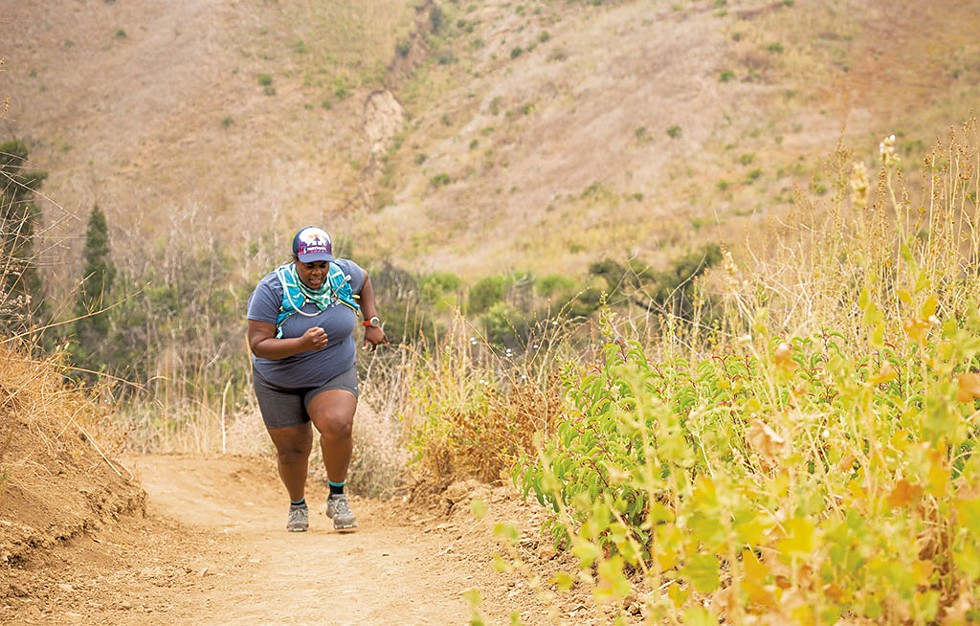
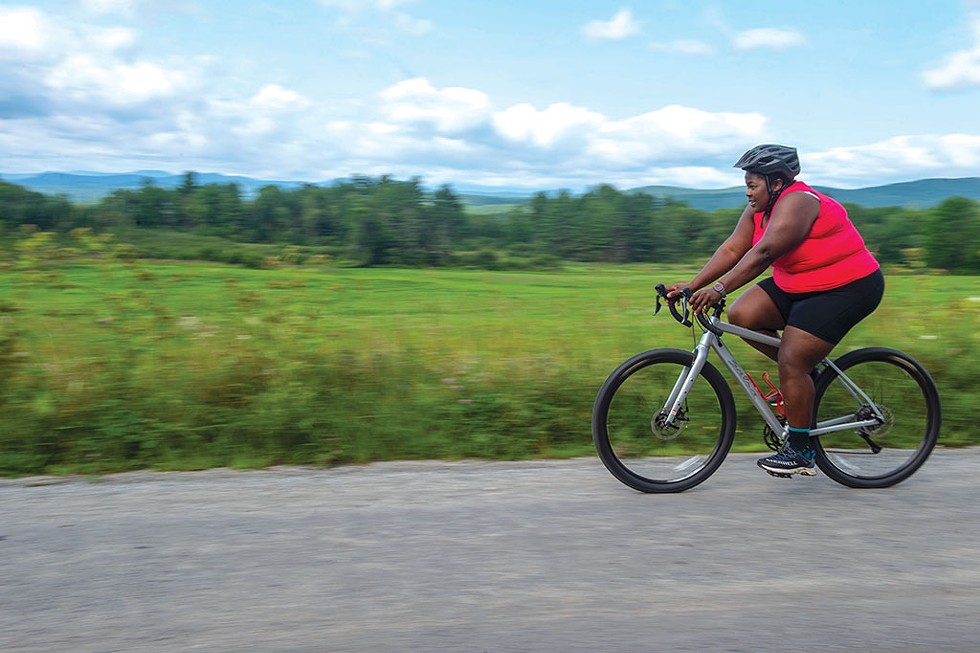
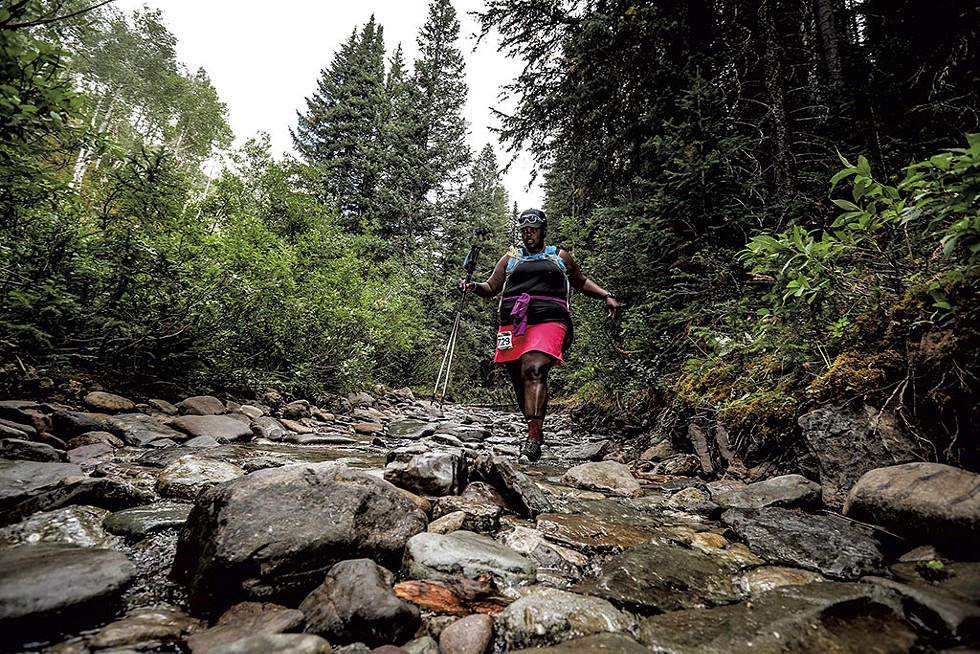
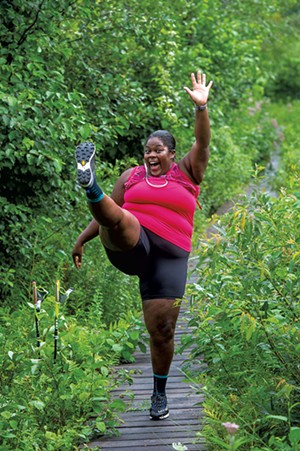


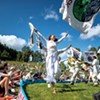


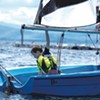


find, follow, fan us: